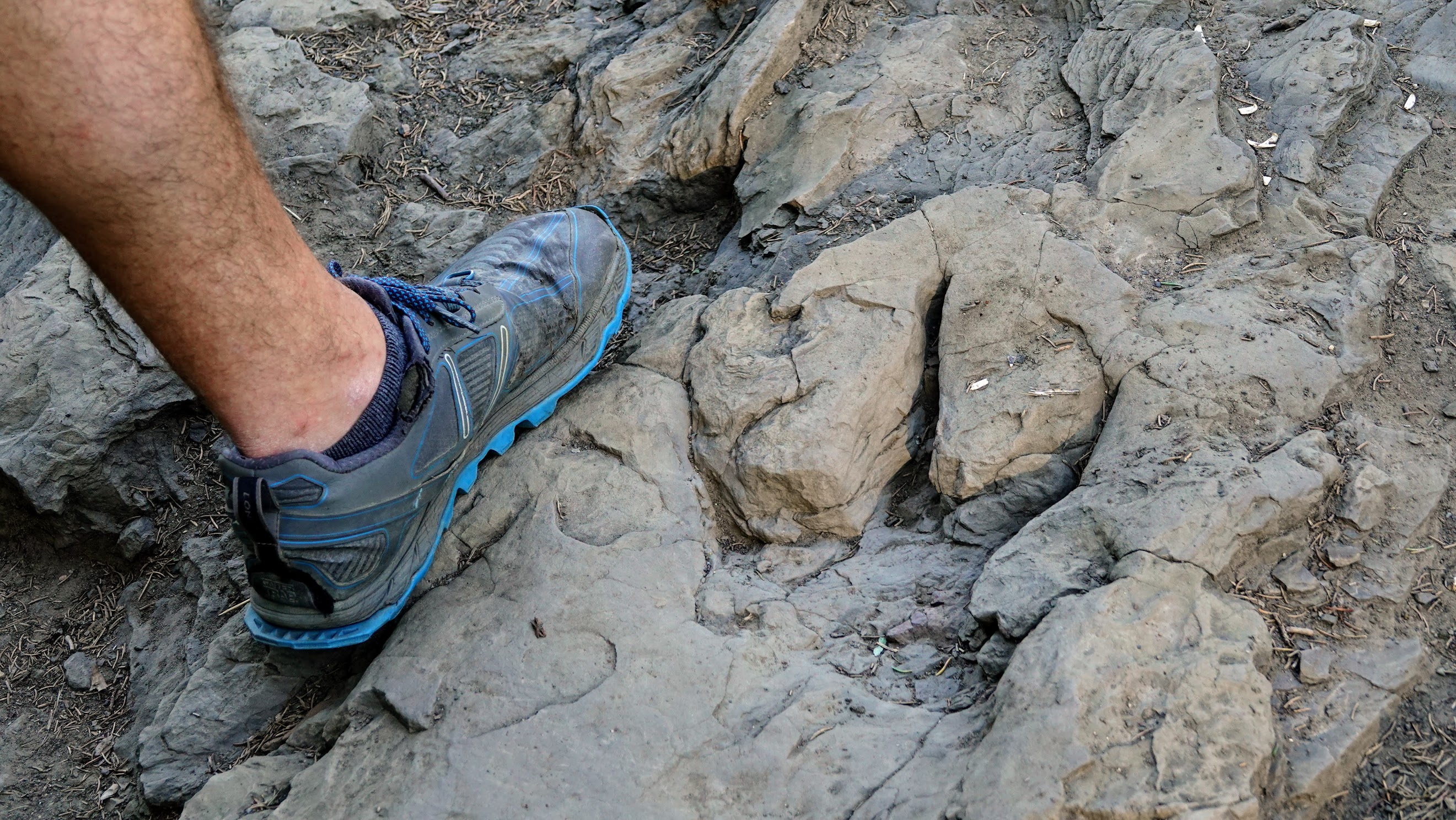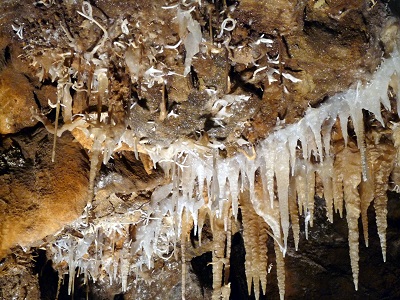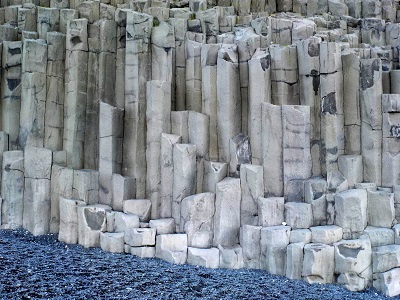
HISTORICAL GEOLOGY LECTURE AND LAB (GEOL 111 -- formerly GEOL 11 + 11L)
City College of San Francisco
INSTRUCTOR: Katryn Wiese *|* kwiese@ccsf.edu *|* Office hours
CANVAS | Lecture Textbook and Lab Manual are online inside CANVAS (Zero Cost)
Want to add the class? Review my add policies
Welcome To Historical Geology
Welcome: Video Tutorial (1:13):
Video only | Video w/CC | Script
In this course we will study Earth's history and the methods and tools used in its interpretation. Covered topics include the formation and growth of continents, the creation and destruction of ocean basins, and the evolution of life on Earth as represented by the fossil record. Emphasis on the geologic and life history of North America. The classes have been designed to maximize your interaction with the material, engage and incorporate your own life experiences, and inspire your respect and stewardship for the planet.
Upon completion of the lecture a student will be able to:
- Apply scientific inquiry and investigation of evidence to critically evaluate scientific arguments relating to historical geology.
- Communicate historical geology ideas and theories effectively.
- Apply geologic, stratigraphic, and fossil principles, theories, or models to interpret ancient environments, paleoclimates, and plate tectonic settings.
- Evaluate the ways in which historical geology principles and data impact society and how living organisms have impacted and continue to impact Earth's history.
Upon completion of the lab a student will be able to:
- Investigate geologic phenomena through a variety of scientific inquiry techniques.
- Analyze and evaluate rocks and minerals important to the interpretation of geologic history.
- Analyze and evaluate index and other significant fossils from each of the major divisions of geologic time.
- Choose appropriate relative and absolute dating methods and interpret their results.
- Apply geologic principles, theories, or models to predict and explain geologic histories.
As your instructor, I am committed to finding the most effective ways to engage you with the material and help you to learn. My class formats and teaching methodologies are all designed to help you build your understanding of the material, then kick it around and ask questions of me and your fellow students so you can strengthen it. Through online lectures and textbooks, you will begin the process each week of learning the new material. During the week, you will refine and strengthen that understanding through active learning: completing assignments, correcting them, and engaging in discussion with me and your fellow students.
Why this model? Studies of learning, especially in science, show that students learn concepts best by active application of concepts -- assignments, testing, note-taking, thinking through puzzles -- and integrative discussion with your fellow students and me.
- Harvard Gazette: Study shows students in ‘active learning’ classrooms learn more than they think -- 2019
- Inside Higher Ed: Smarter Approach to Teaching Science -- 2017
- Journal of Geoscience Education: Instructional Utility and Learning Efficacy of Common Active Learning Strategies -- 2017 -- McConnell et al.
Whether you're taking the class in person or online, learning the material is ultimately up to you and how much time and effort you put in (preparation and practice). I will help and guide you, but I can't simply make you learn. If you're struggling, reach out. I want to help. Welcome!
CLASS RESOURCES
- Use CANVAS to:
- Review class syllabus, policies, and schedule.
- Access and watch weekly video tutorials and complete lessons.
- Review additional web resources to assist with weekly content.
- Access and complete weekly assignments and labs.
- Complete weekly quizzes and, if applicable, exams.
- Review grades.
- Use class time, office hours, and CANVAS discussion boards to:
- Check and review completed assignments.
- Engage in collaborative review and discussion of lecture topics.
- Ask questions of your fellow students and me.

IS THIS THE RIGHT COURSE FOR YOU?
Let's review some of the basic logistics of this course, and then you'll know whether you're ready for it.
- Is this your first science course? Student with the best chance of success in this class are those with a strong background in math and English (it is advised that you have completed Algebra 2 and Geometry and have completed or be co-enrolled in college-level English).
- Are you comfortable with technology? During this semester, you will be watching online video tutorials and completing online assignments each week. You will need:
- Solid internet connection and access to YouTube (any browser, most devices) to access tutorials.
- A camera (phone camera works fine!), so you can upload photos of some of your work.
- Google Mail, Docs, and Photos so you can share photos with your fellow students.
- CANVAS to complete assignments and take some quizzes/exams.
- Do you have enough time in your schedule? The weekly workload for this class is, on average, 9 hours for 17.5 weeks, broken down, generally as follows:
- Watching weekly video tutorials and referencing the online textbook as needed and completing assignments that go along with the tutorials (~5-6 hrs per week)
- Attending class (1.25 hrs)
- Practicing and reviewing material prior to quiz (1-2 hours week)
- Taking quizzes/exams (~20 min/week).
- Other miscellaneous activities like accessing additional review resources (online textbook and web resources), and communicating with other students and me.
General-education science classes are not easy. They really do require consistent effort. Your best chance of success is to have positive and regular engagement with me and your fellow students and to keep on task (meeting deadlines and keeping up each week). As your instructor, I will do my best to provide you these opportunities. It will be up to you to step up and engage! I look forward to meeting all of you and having you meet each other.
QUESTIONS?
If you have any questions or concerns regarding class format or content, remember your resources are the videos, CANVAS, me, and each other.
- My office hours. See schedule at my website.
- CCSFMail (student Google Mail accounts) instructions and access to many CCSF technology services can be found at MyCCSF.
If you have forgotten your password, log into your myRAM account and find the CCSF Mail password reset under your profile. - CANVAS: You are welcome to login early to view the class in CANVAS (available only if you are registered and only after college loads classes a few weeks before semester starts). However, you cannot complete assignments in CANVAS until the first official day class starts. To access videos anytime you want outside CANVAS, go to Earth Rocks! Videos.

Other Support Services:
- Disabled Students Programs/Services (DSPS) -- Rosenberg Library, Room 323, on the Ocean Campus. Telephone: 415-452-5481 (V) 415-452-5451 (TDD) -- DSPS is the campus office responsible for verifying disability-related need for academic accommodations, assessing that need, and planning accommodations in cooperation with students and instructors as needed and consistent with course requirements. Students who need academic accommodations should request them from the DSPS.
- Counseling Department (Note: Counselor Anastasia Fiandaca is a good counseling resource if you aren't already working with a good counselor. She is especially experienced with environmental courses and programs and this class in particular. Phone: 415-239-3824)
- Learning Assistance Resource Center -- R207 -- 415.452.5502
- Student Services
- CANVAS support
READY TO GET STARTED?
If you are registered, then sign in to CANVAS for Week 1 details and requirements. The class will be available at least a week before the semester starts.